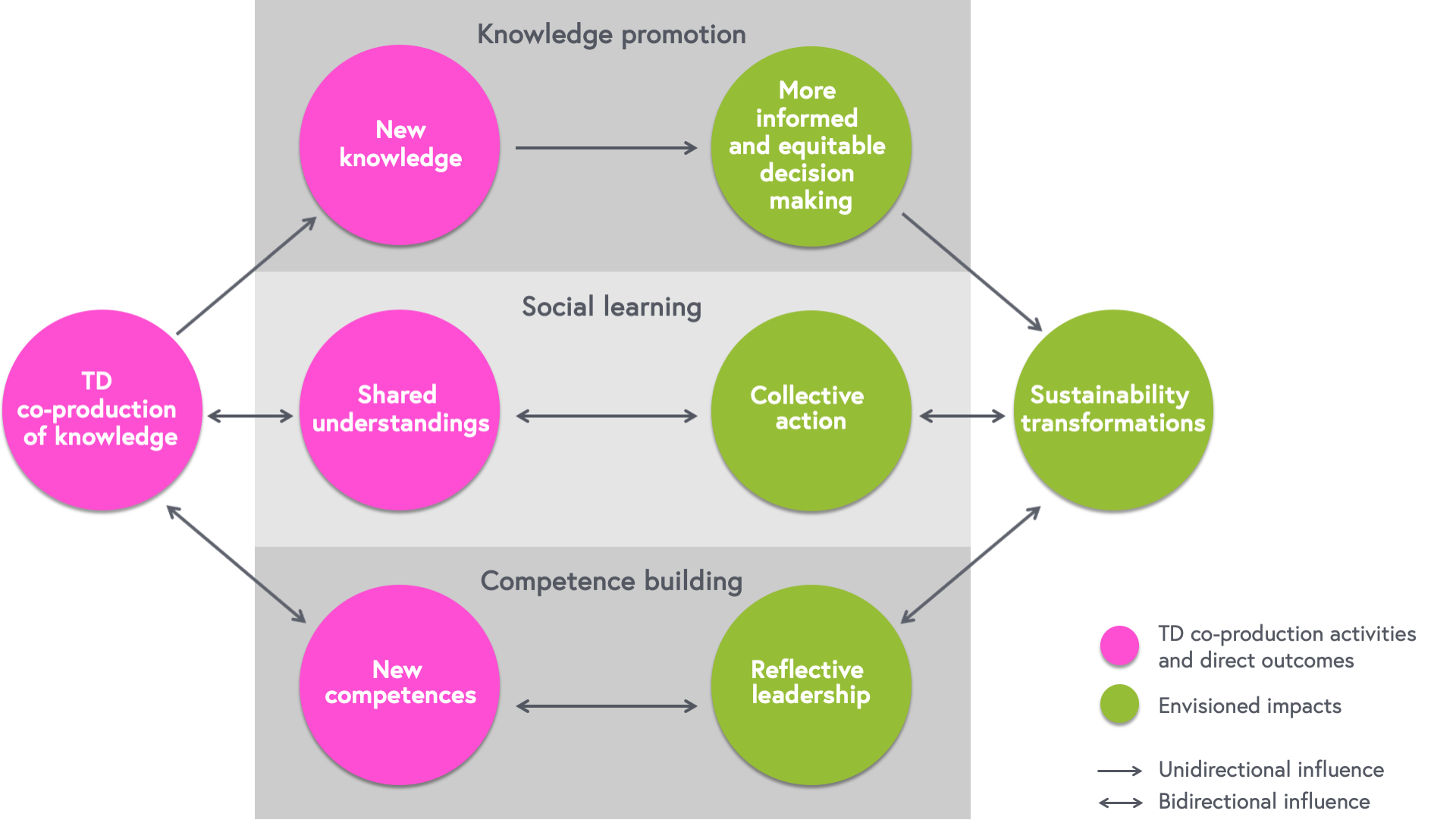SETTING UP A TRANSDISCIPLINARY RESEARCH PROJECT
3.6
How could your project make a difference?
Transdisciplinary research (TDR) generally aims to contribute to solving, mitigating, or preventing various societal challenges. It assumes that collaboration between various scientific disciplines and societal actors is a precondition to generate the knowledge that is truly relevant for the decision-makers and practitioners working towards solving these challenges.
But a higher relevance of the generated knowledge is often not sufficient to contribute to actual changes. Researchers could show that there are various possible pathways from TDR to societal impact. For example, societal impact can be fostered through:
- Promoting systems, target, and transformation knowledge for more informed and equitable decision-making (e.g. through open access databases, websites, training courses, media, policy advice)
- Fostering social learning for collective action (e.g. through multi-stakeholder groups, real-world laboratories, North-South partnerships)
- Enhancing competences for reflective leadership (e.g. through communities of practice, transformative education)

Generic mechanisms for impact generation. (Based on Schneider et al., 2019)
However, impact generation through TDR is a highly complex process. It is not easy to identify the most promising strategies and its success also depends on external factors that are beyond the room of manoeuvre of the involved researchers. In other words, to define what strategies are most promising for a specific research project requires considering the project’s goals, context, history, and basic assumptions or worldviews of the actors involved.
To identify the most promising pathways to impact, change theory thinking can be very helpful. The theory of change thinking originated in the field of programme planning and development cooperation. It aims to enhance learning for effectiveness of societal interventions through designing and regularly scrutinising pathways to impact. A theory of change outlines an intervention’s working hypotheses about how its activities might trigger changes and continuously refines it through cycles of action and reflection.
Understanding a transdisciplinary project as an intervention at the science–society interface means exploring basic assumptions about how societal transformations unfold, as well as defining what role scientists and academic knowledge should play in this process, and how specific knowledge-related activities can induce transformative change. A tool to develop a theory of change can be found here.
Author: Prof. Dr. Flurina Schneider
Further Reading
Schneider, F., Giger, M., Harari, N., Moser, S., Oberlack, C., Providoli, I., Schmid, L., Tribaldos, T., Zimmermann, A. (2019): Transdisciplinary co-production of knowledge and sustainability transformations: Three generic mechanisms of impact generation. Environmental Science & Policy 102, 26–35.
Belcher, B., Suryadarma, D., Halimanjaya, A. (2017): Evaluating policy-relevant research: Lessons from a series of theory-based outcomes assessments. Palgrave Communications 3 (17017).
